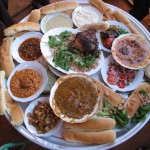On 9th July, 2011, South Sudan, then part of the Sudan, became an independent country. The huge majority of the population of South Sudan considered this step a colossal victory—something that they had sought for a long time. But one main challenge that accompanied breaking up South Sudan just as it gained its independence was the tendency to manipulate ethnic identities for private interest. Thus, we can understand the root causes of the current ethno-political competition, discrimination, and violence.
Following independence, internal divisions among the ethnic groups became noticeable. South Sudan has 64 ethnic groups, and they all have unique cultures and languages. Although there were divisions and conflicts among them before, the South Sudanese ethnic groups generally put those aside and united against the common enemy of Sudan. Once that common enemy disappeared, though, they started to focus on the differences among themselves, and inter-tribal violence broke out.
The strong identification with one’s ethnic group created a poor sense of belonging to a shared nation. People are identified by ethnicity, for instance, Dinka, Moru, Bari, Nuer, Lotuko, Shilluk, etc. The ideal solution could be to create an institutional atmosphere in which all citizens of South Sudan can live together and maximize their values.
Nevertheless, many of the issues facing South Sudan are interrelated—for instance, there cannot be peace if the government is incapable of managing effectively the ethnic diversity in South Sudan and improving the ability of the various ethnic groups to live together peacefully notwithstanding their religious and sociocultural differences.
Living together in peace with the other who is different from you is still the biggest challenge to socioeconomic progress in South Sudan. It has become not so easy among many South Sudanese to accept the other as being different and to coexist in peace with him or her.
On the 15th December, 2013, the viability of the South Sudan state was put at risk when fighting spread from a few presidential guards to many parts of South Sudan and soon became a militarized ethnic conflict.
What occurred made me think about the other who is different from me—but is also a South Sudanese like me. Should I kill the other because he/she is different from me? Compete against the other because he/she is different from me? Or cooperate with the other notwithstanding his/her differences? Is it possible for South Sudanese communities to recognize and accept their differences build a peaceful civil society? How can the main differences between the ethnic groups in South Sudan be no longer a source of conflict?.
 On 15th January, 2014, I was challenged to recognize and accept the other as different when my close friend and I were invited for a thanksgiving prayer in the house of another friend of ours, who was carjacked in Munuki (a suburb of Juba town). Luckily, he got away with his life, sustaining only a slight bullet wound on his ankle. To my surprise, some Muslims were called to lead the prayers for thanksgiving. At first I felt uneasy, but gradually I accepted it. After the prayers we had a shared meal, all using our hands to eat from the same dish! It is common practice in South Sudan.
On 15th January, 2014, I was challenged to recognize and accept the other as different when my close friend and I were invited for a thanksgiving prayer in the house of another friend of ours, who was carjacked in Munuki (a suburb of Juba town). Luckily, he got away with his life, sustaining only a slight bullet wound on his ankle. To my surprise, some Muslims were called to lead the prayers for thanksgiving. At first I felt uneasy, but gradually I accepted it. After the prayers we had a shared meal, all using our hands to eat from the same dish! It is common practice in South Sudan.
This situation challenged me—not because of the type of the food but because of the ethnic composition at the meal. Different ethnic groups were accepting each other and sharing the same dish. I came to understand that not accepting the other who is different from me is a result of seeing the negative in them. Instead of focusing on why someone is different from me, I should focus on how to live together in our diverse but one country—inhabited by people with very different religious, moral, sociocultural, and political beliefs.
Noel Nyombe Santo (ISSRPL 2012, EPA 2012) is a Catholic Priest from the Archdiocese of Juba in South Sudan and a Ph.D. candidate in Development Studies in Uganda Martyrs University.
Our diversity is our unity. . . accepting them certainly will give peace a chance.
Nice one Fr. Noel. Keep it up.
The challenge among us is “who to set the example in such an open-hearted manner and sincerity.”